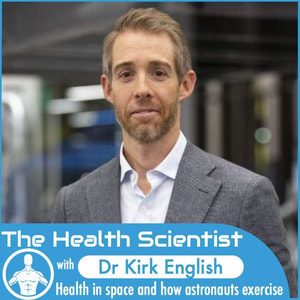Ep.45 Kirk English: Health in space and how astronauts exercise

Kirk is an assistant professor at the University of Houston-Clear Lake (UHCL) and the director of experimental research at the Health and Human Performance Institute, also at UHCL. Prior to that, he was an exercise physiologist and senior scientist at NASA-Johnson Space Center where he continues to collaborate and consult. Broadly, his research evaluates nutritional and exercise interventions to protect and enhance skeletal muscle metabolism, mass, strength, function, and performance. He has applied this focus to individuals with chronic disease, aging adults, competitive athletes, and astronauts.
In this episode we cover:
- Kirk's background in exercise science and how he got involved with NASA
- What's it like working for an organization like NASA and what work did Kirk do in the lab?
- What are the health problems associated with spaceflight?
- What physical changes do astronauts experience after an extended period in space?
- How can scientists recreate some of the conditions that cause muscle loss on Earth?
- How much muscle mass and bone mass and strength can an astronaut lose while on a mission?
- Why is maintaining muscle in space so important? Why do astronauts need to be strong and fit?
- Can astronauts gain strength during spaceflight?
- How do astronauts train for emergency situations?
- How do astronauts train in space.
- How has space-training equipment evolved over the years and what are the engineering problems that have be dealt with?
- What kind of training programmes do Astronaut Strength Conditioning and Rehabilitation Specialists (ASCRS) prescribe?
